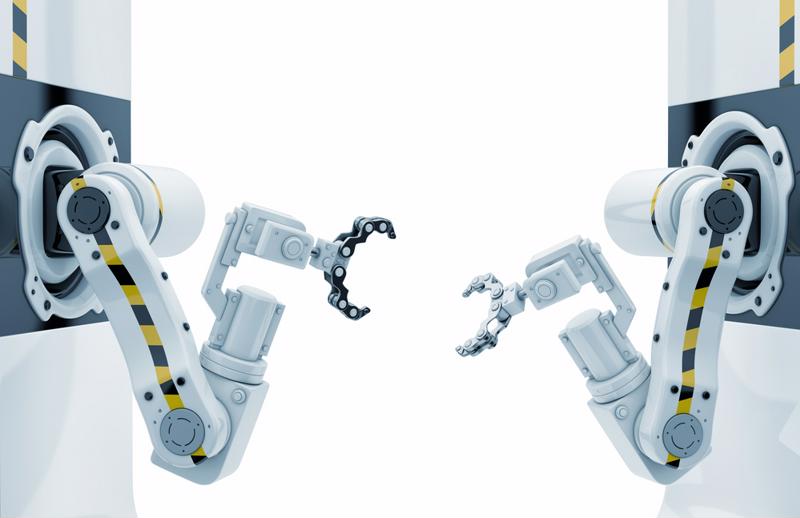Which industries will experience the most automation in the next decade?
Americans have been hearing about the threat of automation to the job market for a long time now. In many cases, automation doesn't necessarily eliminate previously available jobs, but rather changes the nature of the position. For instance, the work an accountant does today looks quite a bit different compared with the same position from 20 years ago.
Nevertheless, a recent report from McKinsey & Company projected that automation could impact as many as 800 million jobs by 2030. But just as jobs are taken over by robots, new positions for humans are likely to emerge. Here are a few industries most likely to be impacted.
Health care
The health care industry is always at the cutting edge of technology, so it should be no surprise that more tasks are being automated all the time. For example, in 2000, the Food and Drug Administration approved the Da Vinci Surgical System, a robotic device that allows human surgeons to perform complex operations with smaller incisions and less-invasive maneuvers.
On the administrative side of the industry, automated systems are making work easier for non-clinical staff. Tablets have replaced the once-familiar pen and clipboard, electronic health records have streamlined communication between practitioners, and algorithms are slowly taking on financial audit responsibilities.
Thus far, the majority of these automated solutions have served to augment human capabilities, not replace staff entirely. It will likely be a long time before you see a robot phlebotomist.
Finance
Automated financial services have been growing in popularity ever since the financial crisis of 2008. According to BlackRock Financial Management, these services were originally used by human financial advisors to speed up locations. Eventually, automated 'robo-advisors' emerged, allowing consumers to skip the fees associated with human advisors.
NerdWallet reported that robo-advisors perform just as well as human advisors when using a passive investment strategy: buying and holding onto assets for a long time. However, robo-advisors still can't accomplish complex tasks such as diagnosing financial problems within a client's portfolio. More of these types of tasks may become automated in the future, but for now, human advisors are still vital.
"In our Chicago Financial practice we have successfully recruited and placed many people within the financial management and advisory sector," remarks Michael Pickens, Division Director of Beacon Hill's Financial Division in Chicago. "We have found that technology has improved our placed candidates' abilities to provide better client service in their positions. The mundane tasks in the capturing and recording of data can be automated, thus freeing the individual to better focus on their clients' needs. In addition, as with many advisory firms, candidates at this level will also be involved in business development, which includes client retention and client acquisition. By automating some transactional tasks, there will be time for growing the business."

Marketing
If you perform a Google search for the term 'marketing automation' you're likely to see dozens of software solutions. Many of these technologies are highly useful for automating certain aspects of a sales funnel, but that doesn't mean they completely automate the marketing process.
For example, an automation solution might take several pieces of content developed by humans, compare it to an email list, and automatically decide which piece should go to each person on the list. This frees up marketing professionals to perform more complex tasks, such as generating inbound leads. Here, automation hasn't replaced many jobs, but it has changed the nature of the work.
Transportation
Americans have been promised automated vehicles for a long time, but they have been slow to materialize. In fact, the Department of Transportation began funding the research of self-driving cars in 1991, and the U.S. Army developed several prototypes in the early 2000s. Only recently have consumer models become available. Even then, these new cars are only semi-autonomous and still require a human in the seat.
As companies like Tesla introduce electric powered semi-trucks, the likelihood of automated fleets grows more realistic. However, such technology would likely require major changes to national infrastructure as well as federal and state policies before it could operate efficiently. The wheels of government move slowly, so may not see a fully automated transport industry for several decades.
Automation is happening, but it doesn't have to negatively impact your job search. To establish the career path of your dreams, connect with an expert recruiter at Beacon Hill today.
 Back to Top
Back to Top

